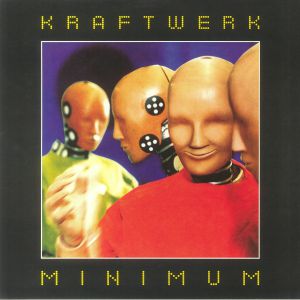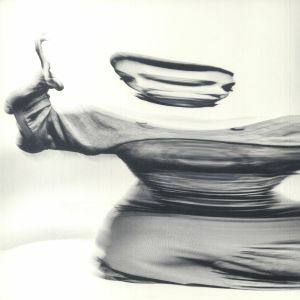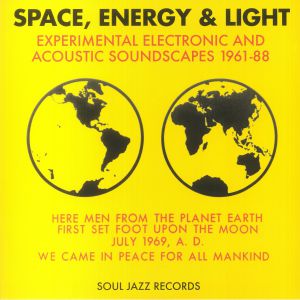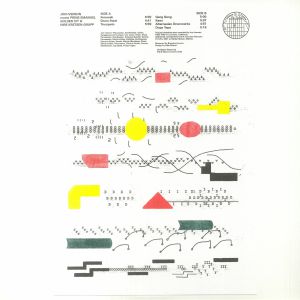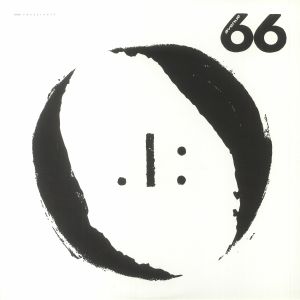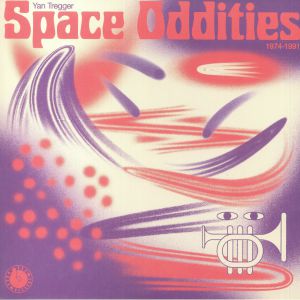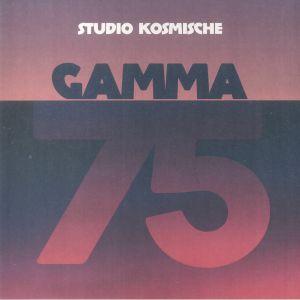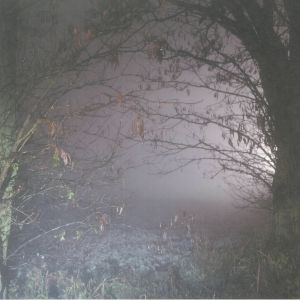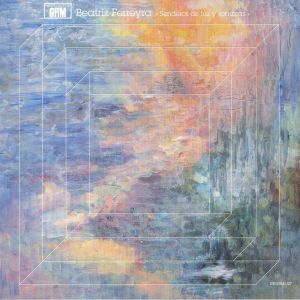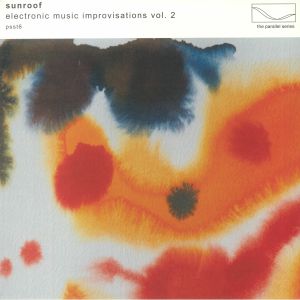
Juno Recommends Experimental
Juno Recommends Experimental: March 2023
Read more...
1
Review: Sure to sate all of their North Face and/or Arcteryx-jacketed obsessives, a new reissues spate of Autechre's best albums is underway courtesy of Warp Records. This reissue of Confield (arguably one of their most straightforward and 'chilled' experimental records) comes in the form of a double LP and digital download. The album is characterised by its shifting in and out of tempo structures, as well as its serene pads and digital sloshing sounds, producing the overall sonic character of a transhuman rainmaker.
in stock $30.82
2
Review: Never before seeing an official LP release until now, 'Minimum-Maximum' was the first ever live album by techno pioneers Kraftwerk, disseminating a new form of concert in DVD form. The ubiquity of mass media - on which the band so readily commented - has now lent their efforts a solid deal in the form of a dual release by Transistor Music, spanning various appearances in cities including Tokyo, London, Tallinn and Warsaw. This version, 'Minimum', forms the album's first half, featuring such riveting retrofuturistic hits as 'Vitamin', 'Tour De France', 'Autobahn' and ''The Man-Machine'.
...Read more
out of stock $19.89
3
Review: A new reissue run of Autechre's best albums is underway, courtesy of Warp Records. The seventh LP Draft 7:30 is one of their many lesser-cited projects, but easily rivals many of the greats for all its ahead-of-its-time tinkerings and extrahuman sonic abstractions. Highlights for those not yet in the know include the stop-start snares and machinic crunches of 'IV VV IV VV VIII', and the mood of psychic absentia conveyed by the rapid-delayed big beat breaks of 'V-PROC'.
in stock $33.33
4
Review: Mancunian producer Andy Stott laid down his trademark knackered house and techno sound with this album, Luxury Problems. It was made from eight tracks recorded over 12 months, with five of the songs featuring vocals from his old piano teacher who Stott hadn't seen since he was a teenager in 1996. The whole thing now gets a welcome reissue as one of the best in his discography. The opening track 'Numb' has the vocalists looped and layered vocals exuding a cinematic quality. The paranoid, dense, slow-moving qualities that Stott has made his signature remain, but they've been toyed with and manipulated, and the vocal elements feel like a calculated gamble - one that has truly paid off.
...Read more
out of stock $38.65
5
Cat: STS 416LP. Rel: 13 Feb 23
Experimental/Electronic
Review: So many artists were hammered by the pandemic, it's impossible to draw much distinction between who fared well and who fared worse. Psychologically, the impact of disconnect and isolation on major global stars would have been immense, while emergents had the wind taken out of their sails in such a brutal way, at a time when momentum was everything.
Kelly Lee Owens falls somewhere between the two, with the pandemic devastating plans for a world tour, indicative of where she'd got to, and where she was tipped for next. With all dates off, she opted to jump on a plane - as it happens the last plane to Norway before borders shut - where she hauled up in a studio with avant-noise supremo Laase Marhaug. No particular place else to be, nor a plan, their recording sessions are capture here in music channelling industrial electronica, Celtic mysticism, leftfield pop and something else.
Kelly Lee Owens falls somewhere between the two, with the pandemic devastating plans for a world tour, indicative of where she'd got to, and where she was tipped for next. With all dates off, she opted to jump on a plane - as it happens the last plane to Norway before borders shut - where she hauled up in a studio with avant-noise supremo Laase Marhaug. No particular place else to be, nor a plan, their recording sessions are capture here in music channelling industrial electronica, Celtic mysticism, leftfield pop and something else.
...Read more
out of stock $18.49
6
VARIOUS
Cat: SJRLP 392C. Rel: 20 Feb 23
Experimental/Electronic
Review: Something of a cult classic born again - a little like the New Age philosophies that act as foundations for at least some of the work here - Soul Jazz presents the long-out-of-print Space, Energy & Light album. An expansive, often mind-altering, and unarguably far-reaching collection of pioneering work from the world of synthesised music, it spans a staggering three decades so there's an awful lot to experience.
Not just a celebration of forward-thinking tracks, though, what's here represents an historic archive of development in process and production technology. From bold advancements in hardware, to new approaches to software, it's a collection that runs from the lush and still criminally under-heard space-age soul of Beverly Glenn-Copeland, to Laurie Spiegel's science fiction overtures. Tracks which, even if people didn't realise it at the time, presented blueprints for so much of what is happening in electronica today.
Not just a celebration of forward-thinking tracks, though, what's here represents an historic archive of development in process and production technology. From bold advancements in hardware, to new approaches to software, it's a collection that runs from the lush and still criminally under-heard space-age soul of Beverly Glenn-Copeland, to Laurie Spiegel's science fiction overtures. Tracks which, even if people didn't realise it at the time, presented blueprints for so much of what is happening in electronica today.
...Read more
out of stock $36.14
7
Cat: 35 SC. Rel: 27 Feb 23
Experimental/Electronic
Review: It's a bold, bold statement to claim that a record was "recorded across decades". We all know genius can take time, and geniuses can be easy to distract, but there's slow and then there's starting a project in one aeon and ending it in another. In truth, Jon Iverson Meets Prins Emanuel, Golden Ivy, Inre Kretsen Grupp is that, and then not that. A collaborative project that sees some incredible minds meeting in the middle while never actually meeting. Starting with Iverson's original 1980 American home studio recordings, Seance Centre's Brandon Hocura took unfinished sonic sketches from the master musician and set to inviting 21st Century practitioners to complete the work. Looking to Malmo, Emanuel Sundin (Prins Emanuel), Ivar Lantz (Golden Ivy) and Martin Blomberg (Inre Kretsen Grupp) were drafted for that duty, and the result is this slow burn album somewhere between atmospheric badlands and kosmische.
...Read more
out of stock $35.58
8
Review: Electronic music is guilty of so many injustices it's hard to know where to begin. Among the least talked about historically is the lack of space made for South Asian and South Asian-heritage artists, who, despite the written pantheons doing their best not to emphasise it, have contributed an incredible amount to the canon's many genres. Things are improving in terms of representation and visibility, but there is still a very, very long way to go.
Even without the urgent need for more equal coverage, it was always going to be hugely exciting to get a copy of an Acid Arab album. And Trois does not disappoint. The Paris-based production duo invite us into ever-deeper corners of their sound, from the tense prog chug of 'Ya Mahla' and the stripped techno build of 'Rachid Trip', to the slick and sexy, writhing broken gem 'Gouloulou', it's as varied as the influences involved.
Even without the urgent need for more equal coverage, it was always going to be hugely exciting to get a copy of an Acid Arab album. And Trois does not disappoint. The Paris-based production duo invite us into ever-deeper corners of their sound, from the tense prog chug of 'Ya Mahla' and the stripped techno build of 'Rachid Trip', to the slick and sexy, writhing broken gem 'Gouloulou', it's as varied as the influences involved.
...Read more
in stock $23.52
9
out of stock $31.93
10
Review: John Frusciante of Red Hot Chilli Peppers fame has always had a fine outlet to explore his passion for electronic music courtesy of the Los Angeles label and 303 lovers at Acid Test. He's turned out plenty of EPs and LPs now and 2023 kicks off with his latest offering I. It is a double album with the scones part II also forming his first new solo material since 2020. He has said of the rather sculptural album: "This music was made from sequences which never exceed a single note, many of these pieces being made on a single pattern."
in stock $32.78
11
Cat: NNT 013LP. Rel: 13 Feb 23
Experimental/Electronic
Review: The Electro Maloya Experiments of Jako Maron is a first ever collection of Maron's updated take on the traditional folk music of the tiny island of Reunion, which is off the coast of Madagascar in the Indian Ocean. Its roots can be chased back to African slaves and Indian workers and it is stripped down to compelling rhythms made from the drums and bows. The vocals are in a call and response style which lends it a ritualistic feel and also sometimes it took on the powers that be as protest music. Jako recorded these in 2018 with drum machines and modular synths.
...Read more
in stock $25.29
12
Cat: BB 158LPX. Rel: 27 Feb 23
Experimental/Electronic
Review: Born in Algeria, when it was still among France's colonies, to French parents who themselves claimed Italian heritage, it makes perfect sense that Edouard Joseph Scotto Di Suoccio would wind up making music that seemed born out of a very different place to the one you're looking at. No matter what, or where, you're gazing upon. Strange tunes that take some describing, let's start at the beginning. Following his series of chanson singles released in the late-1960s under the pseudonym Ted Scotto, by the middle of the next decade he'd adopted the Tregger alias and was dipping toes into tones along the lines of what Space Oddities is packed with. First laidback jazz funk, things became more and more exploratory, sci-fi, disco, and kosmische influenced as the years went by. That legacy is remembered and honoured today on some of the world's finest groove-soaked dancefloors and the DJs that dominate them, with this collection giving an insight into the more experimental end of that oeuvre.
...Read more
out of stock $20.73
13
out of stock $20.45
14
Review: Irish astral projectors 12th Isle are back, and we're interested in them because, more than anything, they offer up a sonic voice for mostly younger-generation experimental electronic producers from the nation. Cru Servers are are a fresh signee, a not incorporated, but incorporeal, entity of Rickie & Jamie McNeill. Judging by the words on the album's digital liner notes, the pair harbor a strange fascination with gooey concepts such as stickiness, globulation, tactility, and ectoplasm, which translates rather well to the very wet, very moist soundscapes heard on the record. The LP seems to set up a dialogue with the old-school 2010s wonky sound (think Distal, Flying Lotus) and magnifies it through the lens of, well, even more wonk.
...Read more
out of stock $28.57
15
Review: Left Ear Records certainly set out on a challenging task when work began on Antipodean Anomalies 2. As the title suggests, the second instalment in the series shining a light on the often weird and wonderful tones coming out of New Zealand, Australia, and the vast Pacific wildernesses is packed with curveballs. It also took no less than four years for co-compilers Chris Bonato and Bridget Small to finish their job, including licensing, equating to a dense double album ripe for getting lost in.
They've also opted to focus on a specific period, roughly 1980-1992, and then looked to some of the lesser sung spots that nurtured great things in that time - NA Lounge, TCH and Will Kuiper representing Adelaide as was, Perth presented through the pared back jazz of Buchanan Holbrook. There's much more to it than all that, though, with tracks here crafted through handmade instruments, impromptu sessions, and haiku poetry. Hard to summarise, let's just say it's electronic rooted stuff that's easy on the ear, and deep as the oceans that dominate the region itself.
They've also opted to focus on a specific period, roughly 1980-1992, and then looked to some of the lesser sung spots that nurtured great things in that time - NA Lounge, TCH and Will Kuiper representing Adelaide as was, Perth presented through the pared back jazz of Buchanan Holbrook. There's much more to it than all that, though, with tracks here crafted through handmade instruments, impromptu sessions, and haiku poetry. Hard to summarise, let's just say it's electronic rooted stuff that's easy on the ear, and deep as the oceans that dominate the region itself.
...Read more
out of stock $40.32
16
Review: Appearing on labels as varied as Phonica, Shall Not Fade and Growing Bin, Bartosz Kruczynski has certainly carved his own path as Earth Trax. Now he arrives on Lapsus, the Spanish label which tends towards more introspective electronica and ambient. From the tender folk of 'Closer Now' to the straining neo pop of 'Understand' it's clear we're in for an experience very different to the upfront club bangers we might have enjoyed in the past. Proving himself to be a bold and fearless creator capable of many different sounds, with Closer Now Kruczynski is taking Earth Trax well and truly interstellar.
...Read more
out of stock $25.49
17
Cat: REGRM 027. Rel: 06 Feb 23
Experimental/Electronic
out of stock $26.33
18
out of stock $19.48
19
Cat: SOMA 047LP. Rel: 20 Feb 23
Experimental/Electronic
Night Of 29th Of March (On My 41st Birthday) In Hotel Jupiter In Baalbek While Looking At The Thrilitons Of The Jupiter Temple (27:11)
Review: Mayhem vocalist Attila Csihar is renowned for his inhuman shrieks and otherworldly vocal stylings, often echoing Mongolian throat singing. This latest solo endeavour consists of two improvised live tracks recorded on location in Lebanon whilst visiting the Trilitons and the giant Monoliths of Baalbek. Deeply fascinated by ancient ruins, prehistorical sites and monoliths for most of his life; Csihar conjures entrancing, timeless 20-minute soundscapes pulled directly from the annals of deep forgotten history, utilising his unique, unsettling cadence. A sonic hallucination as much it is a lesson of forgotten cultures and prehistoric technology.
...Read more
out of stock $35.29
20
Review: Shunji Mori's name might not be immediately familiar to those who haven't been paying proper attention, but the Japanese musician has been responsible for so much incredible music over the years it's hard to know where to begin. Perhaps with the nu-jazz, deep house and downtempo output in the early-1990s, when labels like Nuphonic, Japanese Idyllic Records and Down 2 Earth Recordings were providing the platform. Maybe it's the instrumental guitar duo Gabby & Lopez with his buddy Masayuki Ishii, or improvisational concerts performed alongside Daiho Soga.
Who knows. What's really important is that we're here now, with 222 - a return to the solo spotlight for the exalted artist in question. Song For Joni, a brand new full-length, is a spellbinding and beautiful trip into the blissful places we rarely get to visit, ambience that surrounds, then lulls, then hones in. Work is both fresh and decades old, mirroring the overall effect of listening, with time and space seeming to melt away into mesmerising tones.
Who knows. What's really important is that we're here now, with 222 - a return to the solo spotlight for the exalted artist in question. Song For Joni, a brand new full-length, is a spellbinding and beautiful trip into the blissful places we rarely get to visit, ambience that surrounds, then lulls, then hones in. Work is both fresh and decades old, mirroring the overall effect of listening, with time and space seeming to melt away into mesmerising tones.
...Read more
out of stock $27.17
21
in stock $15.97

 USD
USD





